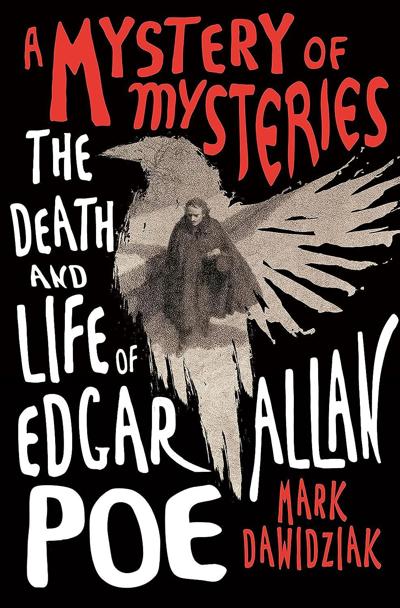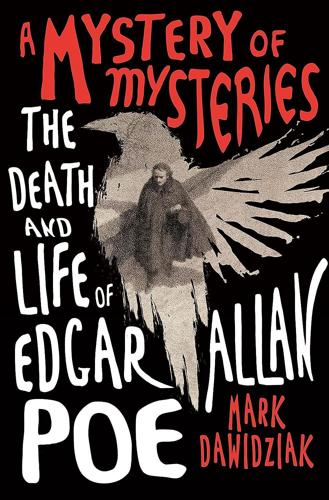Edgar Allan Poe is a man shrouded in mystery and mythology. Like other mythical American figures, such as P.T. Barnum and George Washington, most of what the man on the street knows about Poe is wrong. Most people know him as the black haired, frail, drug addicted, half mad horror author who died drunk in the gutter. None of that is true. Poe had brown hair and was a noted athlete in his youth. There is no evidence he was a drug addict, he was primarily known in his day as a literary critic, he didn’t die in a gutter and many people at his deathbed attest he had no smell of alcohol on him.
As usual, the picture of the real man is more complicated than the caricature that has been assigned him. Mark Dawidziak, in his book “Mystery of Mysteries: The Death and Life of Edgar Allan Poe” seeks to dispel the misconceptions of Poe’s life and myths of his death.
Poe was a man of contradictions and failed aspirations. Famous for literary criticism, he wrote short stories for money but really wanted to be a poet. He was a good husband and poor suitor. He was driven to the bottle when despairing but had almost no tolerance for it, becoming horribly drunk at even the smallest swig. He was simultaneously pitiable and pitiful. He alternated between sunny optimism and gloom. Most of all, his supreme talent in writing (a talent he knew he possessed) was matched only by his talent for squandering any success that came his way.
As quoted in the book, perhaps the most prescient thing written about Poe during his life was that, “his Talents are of an order than [sic] can never prove a comfort to their possessor.”
“Mystery” is a book told in two parts. The book opens at the final three months of his life. Poe is soliciting subscriptions around the Northeast for a magazine he is starting, the one that he’s sure will finally bring him the success he deserves. But Poe is doomed to never see true success in his life and he soon falls into confusion.
The chapters then begin to alternate. Number two covers his birth and early childhood as an orphan under the care of an emotionally absent father and caring mother. Back and forth it goes.
The reason for the heightened attention to Poe’s final months is that, more than any other part of his life, his last months are obscured in a chilled fog of doubt. One Poe tour guide quoted in the book says he’d be a millionaire if he had a dime for every time he was asked about Poe’s death. The contemporary documentation of Poe’s final hours is heavily embellished at best. The ultimate cause of his death is a mystery.
Aside from clearing the fog, Dawidziak also spends some time on Poe’s literary legacy such as how Poe is the father of the modern detective story with his C. Auguste Dupin being the chief inspiration for Sherlock Holmes and establishing many of the tropes of the genre still used today. While the author flies his fan flag further up the pole than most biographers do, he fortunately doesn’t succumb to the temptation to slobber all over his subject.
I enjoyed “Mystery” and think it’s a good middle brow book. Someone who wants more in depth analysis into the man’s personal worldview and philosophy will probably be disappointed. That isn’t the aim of the book and, surprise, Poe’s views are equal parts mysterious and muddled. But it also isn’t some sensationalized true-crime-esque exposé. If you like Poe you may be interested to meet the man behind the myth.
















